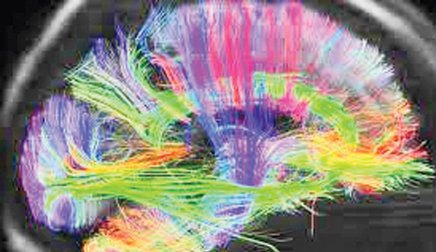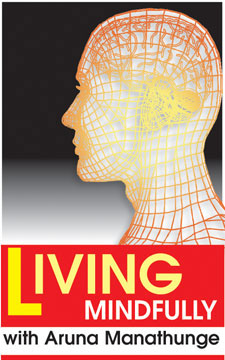|
Benefits
of Mindfulness in Education - Part 6:
Chronic Stress and the Brain
 Today's adolescent school children live a highly stressful life when
compared to 30-40 years ago. Constant demands at school, tuition
classes, exams, pressure exerted by parents and the uncertainty of the
future are some of the main causes of adolescent stress. Today's adolescent school children live a highly stressful life when
compared to 30-40 years ago. Constant demands at school, tuition
classes, exams, pressure exerted by parents and the uncertainty of the
future are some of the main causes of adolescent stress.
 Emotional pressure suffered over long periods lead to Chronic Stress.
Individuals suffering from Chronic Stress perceive they have no control
over the situation. The body also responds by releasing stress hormones. Emotional pressure suffered over long periods lead to Chronic Stress.
Individuals suffering from Chronic Stress perceive they have no control
over the situation. The body also responds by releasing stress hormones.
While the immediate effects of stress hormones are beneficial in a
particular situation, long term exposure creates a high level of stress
hormones may later lead to high blood pressure, damage to muscle
tissues, inhibition of growth, suppression of the immune system and
mental health issues.
Modern Neuroscience has even discovered that prolonged stress can
actually change the brain physically. The part of the brain that helps
to handle threatening situations appears larger in people who are
chronically stressed. Most importantly, researchers have also found that
the areas of the brain involved in rational thinking and planning,
called hippocampus and prefrontal cortex, can actually shrink in size
due to chronic stress. (Ref: Hölzel BK, Carmody JB, et al)
Such
shrinking of the brain areas associated with learning could also result
in gradual declining of academic capability among the affected
adolescent students.
Getting caught up in a vicious cycle
Our brains reflect the way we think throughout our lives. We shape
the structure and the size of the brain by our thoughts and behaviours.
If we play the violin for eight hours a day, then parts of the brain
responsible for violin play will get larger. If we are caught up in
stressful thinking for most part of the day, then those parts of the
brain are going to get larger and other parts of the brain will
deteriorate.
Latest research has found that in time those with Chronic Stress can
get caught up in a vicious cycle. The larger amygdala's (our brain area
connected with flight or fight mechanism) of the chronically stressed
secretes higher levels of stress hormones, which in turn result in
antagonistic behaviours. As the learning, planning, decision making and
reasoning areas of their brains starts to diminish in size they find it
more and more difficult to develop appropriate 'human' responses to such
situations.
It is both ironic and frightening because the very brain circuits we
would need to counter the effects of the stress are no longer working as
well as they should.
Neuroscientists at the University of California, Berkeley, have found
that Chronic Stress triggers long-term changes in brain structure and
function. Their findings may explain as to why young people who are
exposed to chronic stress early in life are prone to mental problems
such as anxiety and mood disorders later in life, in addition to
learning difficulties.
Scientists at the University of California, Berkeley, conclude that
moderate or 'good stress' such as studying hard for an exam or training
to compete at games can build stronger brain circuitry and a more
resilient brain. But acute, prolonged chronic stress can wreak havoc
especially in young age. Chief scientist of the research at the
University of California, Prof. Daniela Kaufer, mentions that we may
create a brain either resilient or vulnerable to mental diseases based
on the chronic stress we get in early life.
Prevent the development of Chronic Stress
It may not be possible to avoid high stress situations during
adolescence in our modern day life. However, it is certainly possible to
learn and apply two proven methodologies to prevent stress from
developing into chronic stress. These are:
1. Regular physical exercises, which bring down the stress hormone
levels.
 2.
Mindfulness practices that develop 'mental and emotional muscles' to
better cope with stress. 2.
Mindfulness practices that develop 'mental and emotional muscles' to
better cope with stress.
Effectiveness of Mindfulness
The practitioners of Mindfulness are trained to focus on the present
moment rather than worry or think about the past and the future or think
about other people. The brain and the body influence each other in both
directions. When we are stressed - a natural outcome is faster
breathing. If we slow down and calm the breathing, the body goes down to
a relaxed state and in turn reduces the levels of stress hormones.
There have been hundreds of scientific researches on the
effectiveness of Mindfulness in relieving stress. There is proven
evidence that Mindfulness reduces stress and anxiety.
The practicing adolescents learn new ways of responding to events and
factors that previously caused chronic stress. In time with continuous
practice, they develop an even minded response to previous causes of
Chronic Stress.
Aruna Manathunge can be contacted at
[email protected]
|

